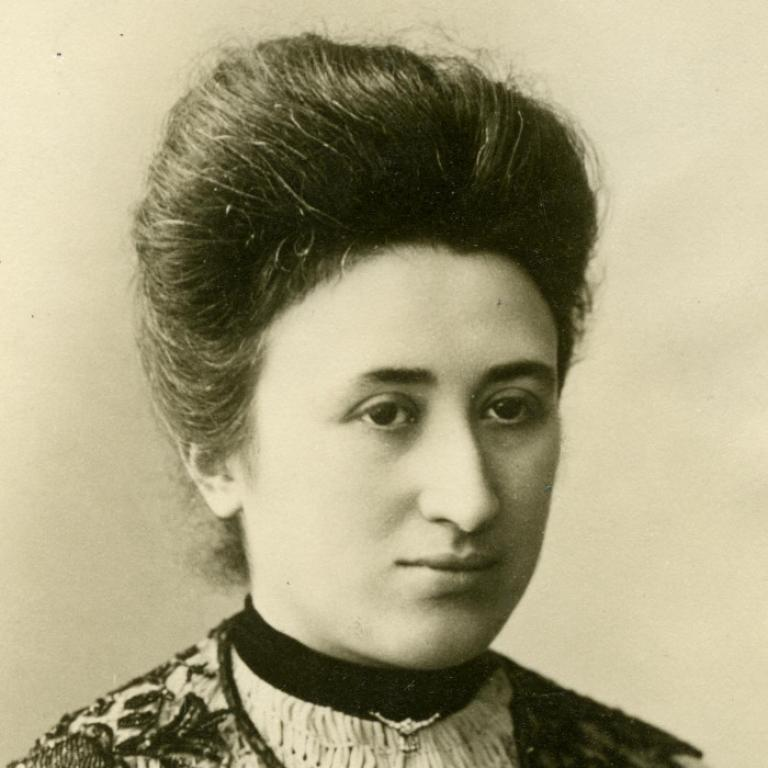“If indeed the socialist commonwealth were an impossibility, then mankind would be cut off from all further economic development. In that event modern society would decay, as did the Roman empire nearly two thousand years ago, and finally relapse into barbarism.
“As things stand today capitalist civilization cannot continue; we must either move forward into socialism or fall back into barbarism.”:rosa:
Born in southeastern Poland on 5 March 1871, Rosa Luxemburg was a towering figure of the classical socialist movement— a brilliant thinker, sharp-tongued rhetorician, and trailblazing leader of the proletarian cause. The famed socialist historian and journalist Franz Mehring once called her the “best brain after Marx”. Her comrade and dear friend Clara Zetkin described her as the “sharp sword, the living flame of revolution”. Even Bolshevik leader Vladimir Lenin, with whom she often clashed, was compelled to acknowledge her status as an “eagle” of the Communist movement, at least in retrospect.
“Democracy is indispensable to the working class, because only through the exercise of its democratic rights, in the struggle for democracy, can the proletariat become aware of its class interests and its historic task.”:rosa:
She was, by all accounts, a truly unique figure. A Jew, a Polish woman, physically disabled and politically an irreconcilable Marxist—the obstacles to her pursuing her aims in life were legion, yet she rose to become one of the paramount leaders of the largest and strongest socialist movement in the Western world, German Social Democracy. In her short but brilliant career, she locked horns with the Prussian military elite several times and spoke as equals with Karl Kautsky, August Bebel, Victor Adler, and many other leading lights of socialism. As a political agitator she rallied masses of workers against capitalism and imperialist warfare, while also challenging Marxist orthodoxy as both a theorist and instructor at the Social Democratic party school in Berlin.
Yet since being cut down by proto-fascist thugs in January 1919, Luxemburg has been memorialized as a martyr for the revolution and a symbol of the tragic highs and lows of Germany’s twentieth century more than anything else. While her name and image remains iconic, her prodigious intellectual output and many contributions to socialist theory, have often been reduced to footnotes.
“Freedom only for the members of the government, only for the members of the Party – though they are quite numerous – is no freedom at all. Freedom is always the freedom of the one who thinks differently. Not because of any fanatical concept of justice, but because all that is instructive, wholesome and purifying in political freedom depends on this essential characteristic, and its effectiveness vanishes when ‘freedom’ becomes a special privilege.”
Megathreads and spaces to hang out:
reminders:
- 💚 You nerds can join specific comms to see posts about all sorts of topics
- 💙 Hexbear’s algorithm prioritizes comments over upbears
- 💜 Sorting by new you nerd
- 🌈 If you ever want to make your own megathread, you can reserve a spot here nerd
- 🐶 Join the unofficial Hexbear-adjacent Mastodon instance toots.matapacos.dog
Links To Resources (Aid and Theory):
Aid:
Theory:

